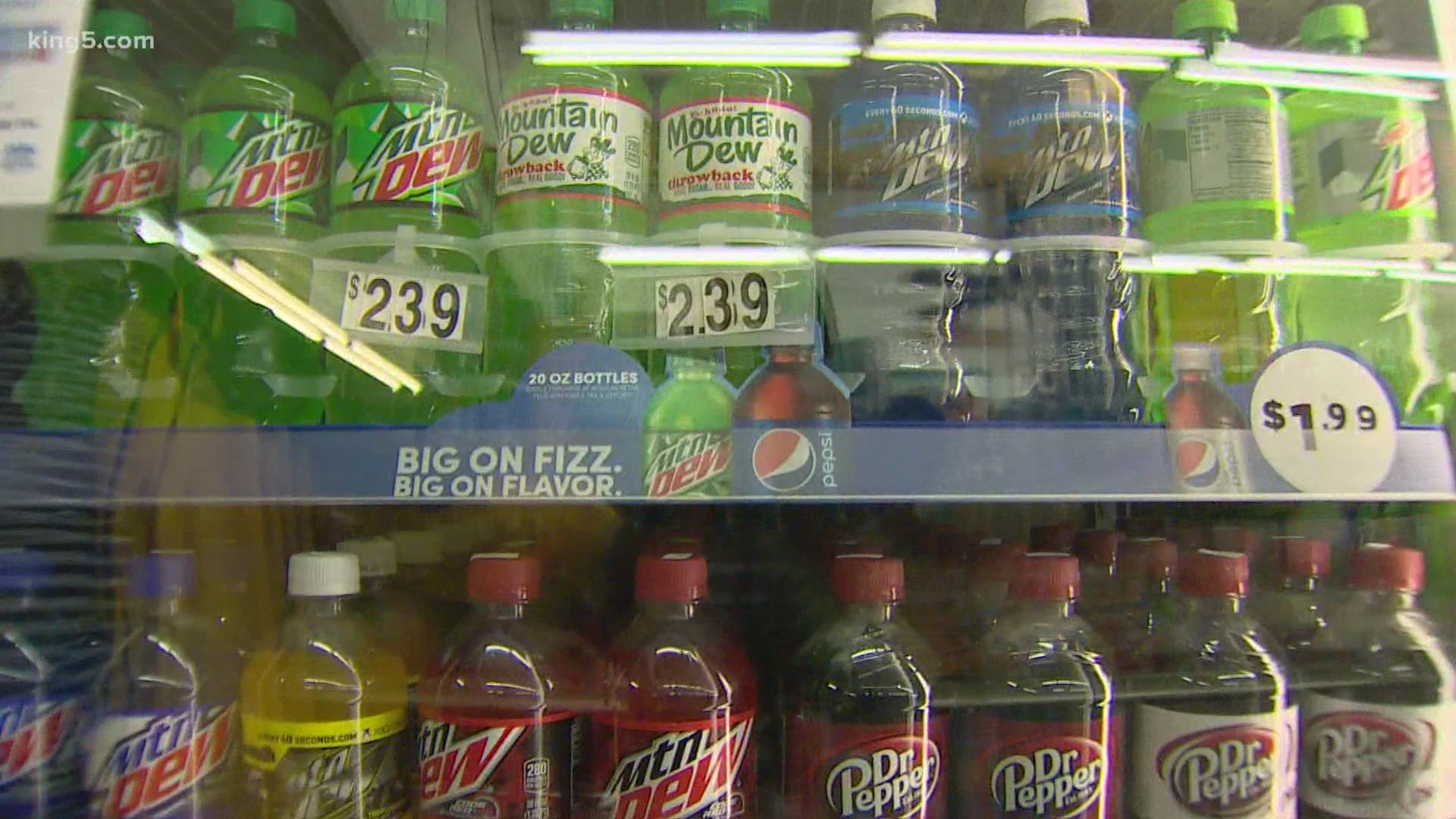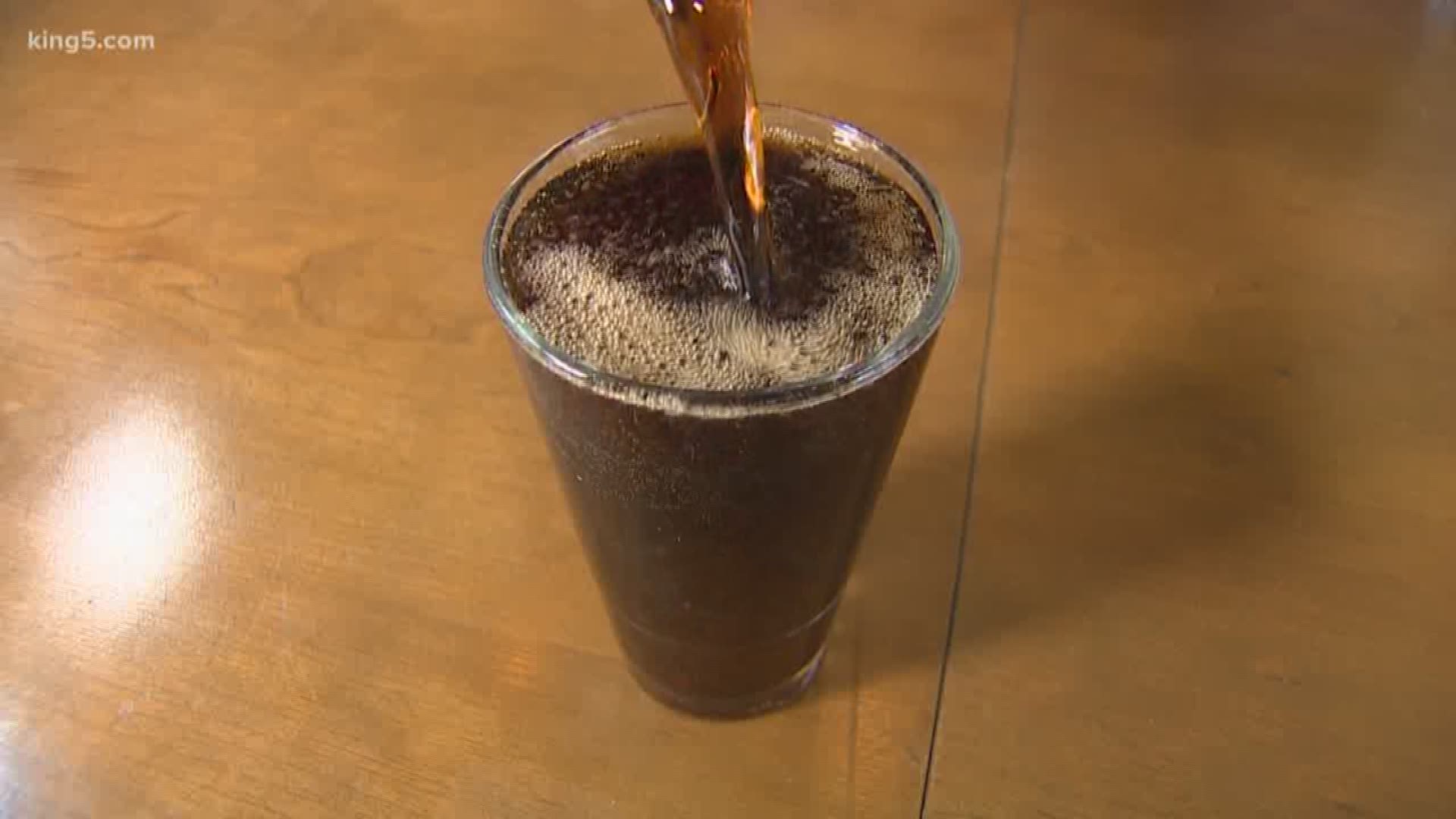SEATTLE — Seattle residents from low-income households are drinking fewer sugary drinks a year after a tax on sweetened beverages took effect, according to a new 12-month report.
However, consumption of sugary beverages also decreased in comparison areas outside Seattle, according to the study. Additionally, low-income families decreased their consumption of non-taxed beverages.
The reduction in consumption, then, may not be attributable to Seattle's sweetened beverage tax, researchers note.
"This may have been due to the tax, but we can’t conclude this for sure because we found a similar decrease among residents outside Seattle, in comparison areas within South King County," report author Brian Saelens, a professor of pediatrics and psychiatry and behavioral sciences at the UW and principal investigator at Seattle Children’s Research Institute, said in a statement. "Both of these are desired public health outcomes – lowered sugary beverage consumption."
The comparison area included Renton, Federal Way, Auburn, and other cities in south King County. Saelens notes the decline in south King County could be because people living in those areas frequent Seattle for work and leisure and are impacted by the tax.
"Sugary beverage consumption has been declining overall in the past few years and we could just be observing this decline in Seattle and the comparison area among children and parents. We are hoping to find out more about our cohort's perceptions of and reaction to the tax with the two-year follow-up data we recently collected," Saelens said in a statement.
Researchers surveyed 315 children and their parents in low-income households before the tax took effect on Jan. 1, 2018, six months into the tax, and 12 months after it took effect. The Seattle measure put a 1.75 cent-tax per fluid ounce on the distribution of sweetened beverages such as soda, sports drinks, and other drinks with exceptions for diet sodas and milk-based drinks such as lattes.
According to the findings, low-income children in Seattle reduced their consumption of sugary beverages by 3.3 ounces per day. In the comparison areas, children reduced their consumption by 3.9 ounces per day. The percentage of low-income children who consume 28 ounces of taxed beverages daily decreased from 30% to 20% in Seattle.
As expected, the price of sugary beverages in Seattle increased following the implementation of the tax. The average price increase was 1.55 cents per ounces, representing 89% of the tax being passed on to consumers. Bottled tea had the highest price passed on to customers.
Prices in Seattle stores near the city's northern and southern borders also increased, but prices were lower than elsewhere in the city.
In 2018, Seattle collected about $22.3 million in sweetened beverage tax revenue, which is about $7.4 million more than initially projected.


